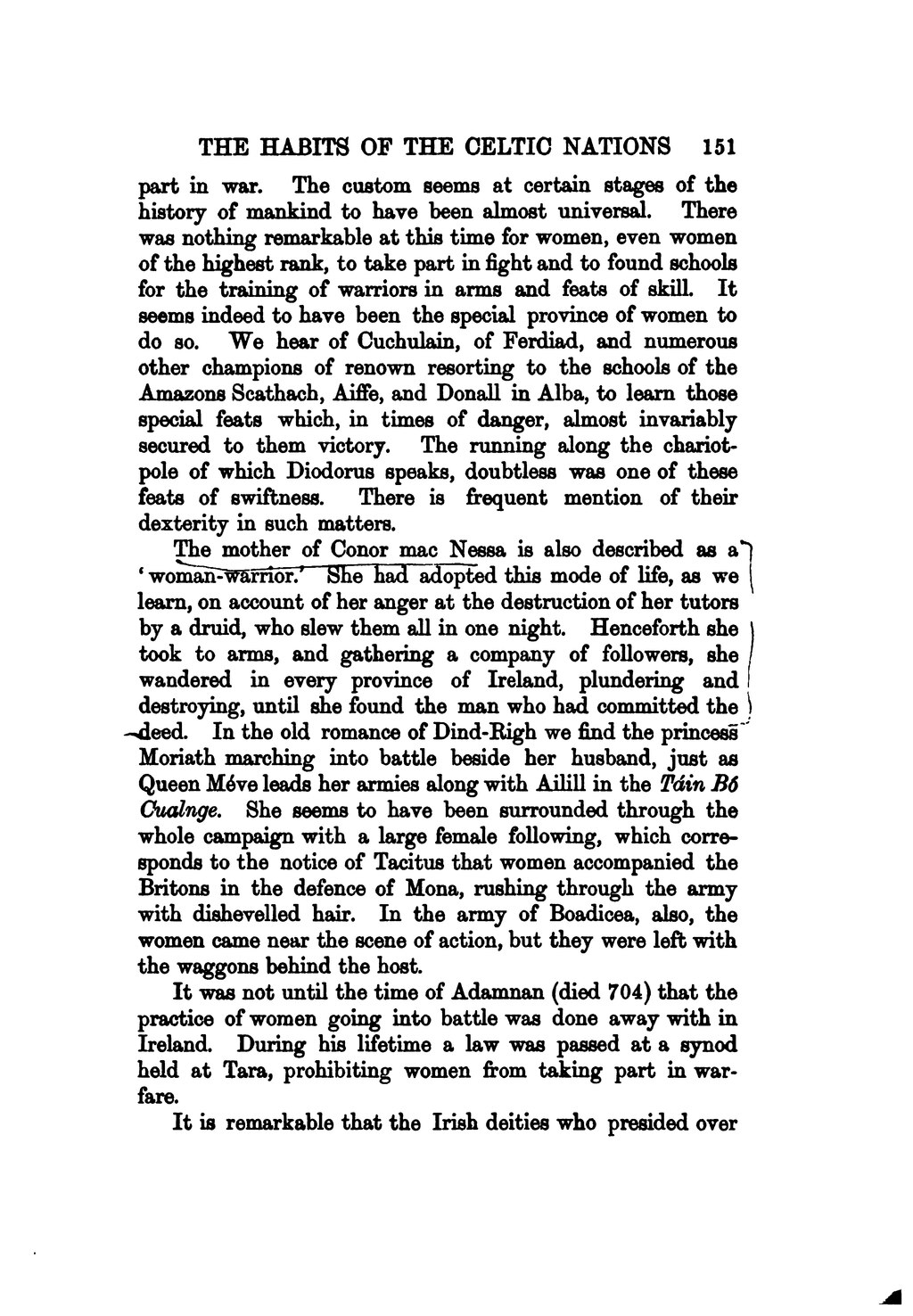part in war. The custom seems at certain stages of the history of mankind to have been almost universal. There was nothing remarkable at this time for women, even women of the highest rank, to take part in fight and to found schools for the training of warriors in arms and feats of skill. It seems indeed to have been the special province of women to do so. We hear of Cuchulain, of Ferdiad, and numerous other champions of renown resorting to the schools of the Amazons Scathach, Aiffe, and Donall in Alba, to learn those special feats which, in times of danger, almost invariably secured to them victory. The running along the chariot-pole of which Diodorus speaks, doubtless was one of these feats of swiftness. There is frequent mention of their dexterity in such matters.
The mother of Conor mac Nessa is also described as a ‘woman-warrior’ She had adopted this mode of life, as we learn, on account of her anger at the destruction of her tutors by a druid, who slew them all in one night. Henceforth she took to arms, and gathering a company of followers, she wandered in every province of Ireland, plundering and destroying, until she found the man who had committed the deed. In the old romance of Dind-Righ we find the princess Moriath marching into battle beside her husband, just as Queen Méve leads her armies along with Ailill in the Táin Bó Cualnge. She seems to have been surrounded through the whole campaign with a large female following, which corresponds to the notice of Tacitus that women accompanied the Britons in the defence of Mona, rushing through the army with dishevelled hair. In the army of Boadicea, also, the women came near the scene of action, but they were left with the waggons behind the host.
It was not until the time of Adamnan (died 704) that the practice of women going into battle was done away with in Ireland. During his lifetime a law was passed at a synod held at Tara, prohibiting women from taking part in warfare.
It is remarkable that the Irish deities who presided over

